|
Here's a little fly-by over the farm center today. Incredible to reflect on the last 4 months where we have been joined by awesome people from all corners of the globe getting deep into education and action during this unique time establishing all systems from scratch. Empowering other's to manage their lives holistically and design solutions to bring their dreams forth is a major part of the Holistic Context we manage towards, and something we are excited to be able to share with so many bright, intelligent & gifted folks. It's been an epic ride so far! With just 3 weeks left of Internship #2 and our final PDC of the season around the corner we are surely looking forward to a restful winter to recuperate and plan for next season; with more animals, new trainings and new people bringing knowledge, skills and passion to everything that happens here at Ridgedale. We will be posting more about the opportunities for Core Team roles for 2015 (sign up to the Newsletter here) with more spaces for a bigger team to make next year even more incredible. Stay posted, we'll be reviewing the year and blogging a lot more over the winter to inform & support others who wish to undertake a similar journey. Last PDC at the farm for 2014
1 Comment
DAY 8
A little bit of a sleep in this morning but the students are so keen that they voted to pass up on the regular full mid-PDC day off, hungry to continue the un-learning journey here at Ridgedale. I’ve never been to a PDC where the rest day was bypassed… these kids are keen! Some even took a stroll down to the lake to watch the sunrise and have a dip, a very popular recreation activity here on the farm. 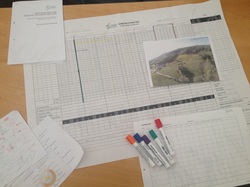 It's Day 2 of our certified Holistic Management training, dipping into the 2nd half of our awesome 10 Week Internship program. The Savory Institute has been updating, clarifying and simplifying their workbooks as smaller & more concise workbooks, available cheaply via their website. We have been running through Financial Planning and Grazing Planning today, using the farm as a model for planning for the factors, observations and circumstances we have in our situation, to ensure we create the best possible plan to move consistently towards our Holistic Context. We see managing holistically is key to forwarding effective regenerative enterprises and regenerating degraded landscapes whilst creating resilient & socially just incomes into the future. We plan to write some series of articles to clarify some of the common misconceptions and explain the process to support others to start managing holistically. Stay tuned for details.
We have another 10 Week Internship running at the farm July- Sept, with a few spots open, where once again we will be training up a diverse and engaging group in the following areas; The 10 Week internship includes over 530hrs of curriculum based learning & 5 Certificate Courses;
Elin, the Ridgedale Chef, has been lovingly restoring this old cream separator. We met a lovely old lady who used to be a champion milker at Ag school and had equipment lying around she was willing to sell us. Compared to modern equipment this gear is super robust, reliable and well engineered (at a fraction of the cost) We like well engineered stuff, and from the context of only needing dairy for farm needs, there seems no better way to go.  Our lovely Fjällko cows, Viola & Clover are doing great after their arrival to Ridgedale. They have adapted effortlessly to life in rotational grazing and seem to enjoy all the attention they get along with hand milking twice a day. With over 30 people representing all the major climate zones here at the farm there is demand for fresh milk and yoghurt, and Clover (who is in the early stages of her 2nd pregnancy and still giving great milk) is supplying it. Towards the end of the year we will have 3 cows and possibly Viola will be pregnant too, which should supply us with all our dairy needs. These cattle are well suited to our needs; a small cow that is hardy, comes from a mountain habitat and likes to browse on a wide variety of fodder and produces milk, that whilst not being so plentiful, comparing the yield per kg live body weight, it is on par with the larger breeds SRB and Swedish Holstein. In addition, mountain cow milk is very well suited to cheese production as it contains high levels of "good" protein. Compared with milk from other breeds it is (per kg milk) almost twice as large, which means it only goes to 7-8 kg mountain cow's milk to get 1 kg of cheese, compared with 14-16 kg of milk from commercial breeds. 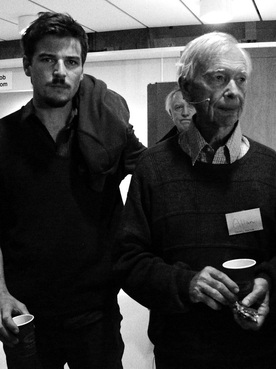 Meeting with Allan Savory in Sweden Meeting with Allan Savory in Sweden Allan Savory's work observing & managing game reserves, ranches & national parks as a biologist is only part of what he describes led him to his breakthroughs fighting desertification (and the subsequent social & economic breakdown in some of the world's most hostile environments) through holistically planned grazing. His role as President of the opposition party against a racist government in Rhodesia (now Zimbabwe) eventually forced him to seek exile in the US where he observed desertification in National Parklands as bad as anything in Africa, yet with large herbivores having been absent for decades. As late as 1969 he was advocating culling large populations of wild animals such as elephants and hippos, when they were appearing to be destroying their habitat. He had participated in the culling of 40,000 elephants in the 1950s but he later concluded the culling did not reverse the degradation of the land, calling that project "the saddest and greatest blunder of my life" in his recent TED talk. Savory was inspired by earlier work of French agronomist André Voisin (some works available freely at the awesome resource http://www.soilandhealth.org/) who observed that cattle tended to return to the same patch of grass after about three days. Savory saw this as a solution of the riddle of time and that it was the length of time cattle were left in the same area and not just simple overgrazing which led to problems. Holistic planned grazing is now happening on every continent on over 15M Ha. 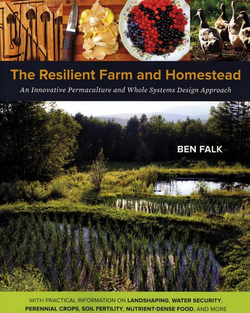 Ben Falk's book is a must for cold climate Permaculture designers, homesteader's and anyone keen to learn from insightful and experienced holistic decision making. We thoroughly enjoyed the read, and most importantly from our perspective; it's a work based on raw experience, dedication and enthusiasm. Permaculture design is learnt by doing; we need more practitioners out on the ground working professionally & implementing resilient and effective solutions restoring ecosystems, connecting people to bring about robust local economies & exchange systems and meeting our human needs holistically. This book supports those objectives, written in a refreshing tone that sets aside theory from observed practice. Ben has a diverse and deep design experience, and we are very excited to have him join us this spring for the first PDC at the farm as a guest lecturer via conference call. Peter Bane wrote a nice review for Permaculture Activist which gets deeper into different aspects of the book if you are interested. If you are considering taking a Permaculture Design Course this year check out the listings at the farm, where we are proud to have some of the leading global practitioners & researchers join us via digital link up, as well as local expertise joining us for different trainings. Details are getting posted on relevant course listings as they come in.
We are also excited to offer what we think is a unique learning opportunity in Europe- our 10 Week Professional Permaculture Accelerator Internship. We might be biased, but we think it's the most exciting Permaculture event happening in Europe this year, including over 530hrs of curriculum based learning & 5 Certificate Courses with some awesome folks joining us on the ground & via teleconference as we initiate this flagship project;
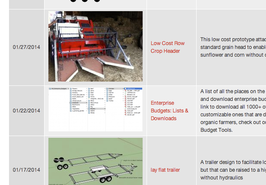 Open Source mod's @ Farmhack.net Open Source mod's @ Farmhack.net As well as Well Engineered Stuff we also like innovative use of tools & machines that make farming less debt reliant; a core aspect of Regenerative Agriculture. Inspired by Darren J. Doherty's innovative adaptations of the Yeoman's Plow (and subsequent other mod's from others) we are tricking out our own Yeomans 6SB to accommodate forhigh quality tree planting as well as seeding, biofert/ compost tea applications and hopefully in the future pasture cropping to close the loop on our pastured broiler & pig enterprises. There's a couple of awesome sites everyone should know about if they don't already.... 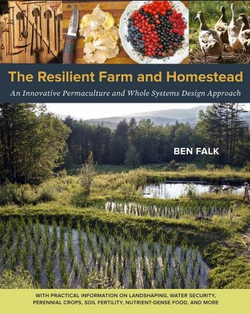 Ben Falk's book is a must for cold climate Permaculture designers, homesteader's and anyone keen to learn from insightful and experienced holistic decision making. We thoroughly enjoyed the read, and most importantly from our perspective; it's a work based on raw experience, dedication and enthusiasm. Permaculture design is learnt by doing; we need more practitioners out on the ground working professionally & implementing resilient and effective solutions restoring ecosystems, connecting people to bring about robust local economies & exchange systems and meeting our human needs holistically. This book supports those objectives, written in a refreshing tone that sets aside theory from observed practice. Ben has a diverse and deep design experience, and we are very excited to have him join us this spring for the first PDC at the farm as a guest lecturer via conference call. 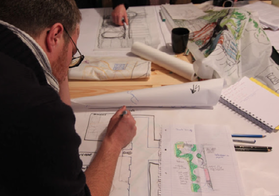 What will you do with this? What will you do with this? Wanting to take a Permaculture Design Course (PDC)? Wondering what you get out of taking a course like this & how they differ around the world? There are regular courses all over the world now and because Permaculture is decentralized there is a great variance in different courses, which we have observed on our travels working & teaching around the world. We've compiled a list of 10 reasons why taking a training with us represents a good investment in both your own learning pathway and offers points well worth reflecting upon generally if you are considering taking a similar training... This is the third of a series of articles looking at design considerations for our Cold Climate Permaculture site using the Keyline Scale of Permanence as a organizing framework, as well as an informative read for anyone interested.
Here's a short film I made with Joseph Holzer up at the Krameterhof last summer. Located 1100 - 1500m above sea level in the Lungau Region in the heart of Austria, this is still one of the best farms in Europe in my mind. With 1.7 days over 30°C (86F), 25 days above 25°C (77F) there is over 160 days of frost including 50 days with no water flow. The systems are very well established, diverse & complex- even to a trained eye it is a lot to take in. Apologies the subtitles are not as clear as they deserve to be, having lost the original files I have done all I can with this colour change. 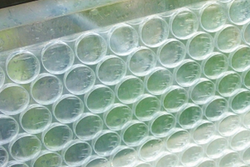 More expensive than tunnels, but much cheaper than glass are the awesome Keder systems from the UK. Utilising plastic air bubble sandwich material has been specifically developed to combine high light transparency with good heat insulation, and individual panels can be replaced without re-skinning the whole thing. Available in 2 metre widths, with a welded weather seal this material can withstand high winds and heavy snow falls. I've seen a picture with a couple of burly guys stood on a 2 x 2m section. They have nicely designed frames, with integrated guttering for rainwater collection, good venting and door systems. The skin design produces a considerable scattering of light (up to 83%) allowing the growing area to be evenly lit, without shadows, so plant exposure to direct radiation is reduced. The layer of sealed air also provides a high level of insulation and heat retention, allowing for longer growing seasons. Keder material is guaranteed for 10 years. I know it's manufactured in Germany, so perhaps it's possible to buy the material from the source. For larger tunnels the company only sell with their own installation, to ensure the guarantee. I have a friend high in the mountains in Extremadura who had one delivered and constructed on the condition he told the boss where the good fishing spots were- so perhaps they will find their way out into Europe more! It's always worth keeping an eye out for free commercial greenhouses. Twice we've found commercial glass houses being given away and carefully numbered, photographed, dismantled and painstakingly re- erected them. Often garden centres will replace theirs every 10 yrs or so to keep things fresh. It's a LOT of work for a 60 x 10m span, but can save 10's of 1000's of pounds and create very high value growing space. For cool/ cold climates where additional/ extended growing space can be crucial, it's always worth the work. Keyline Design as an organizing pattern for Permaculture Design, Part 2 |
Details
Like us on FB Below for regular updatesStay up to date with customized updates you want to receive
Upcoming coursesArchives
December 2016
Categories
All
|
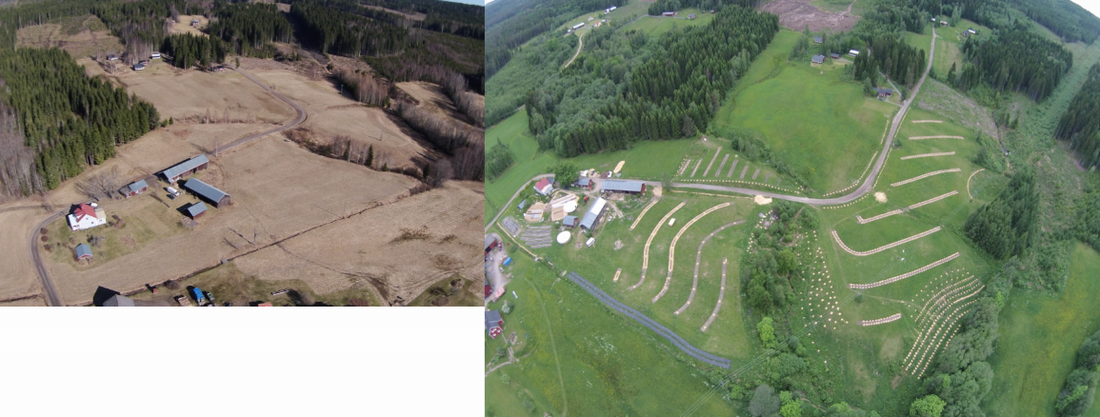

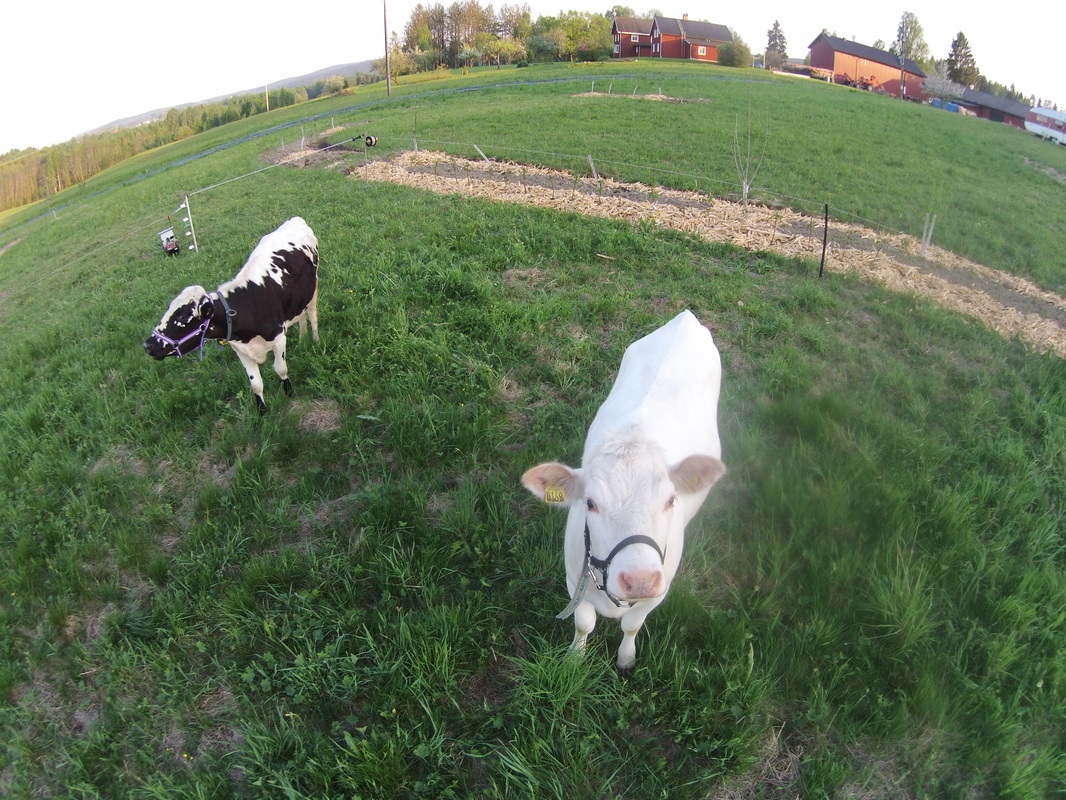
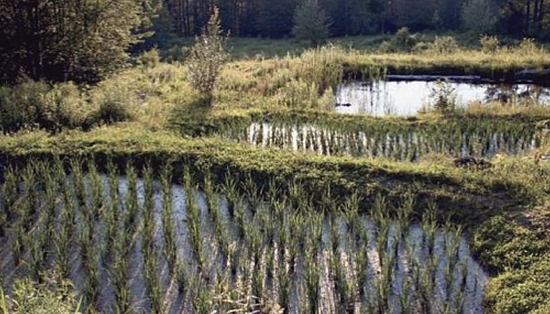
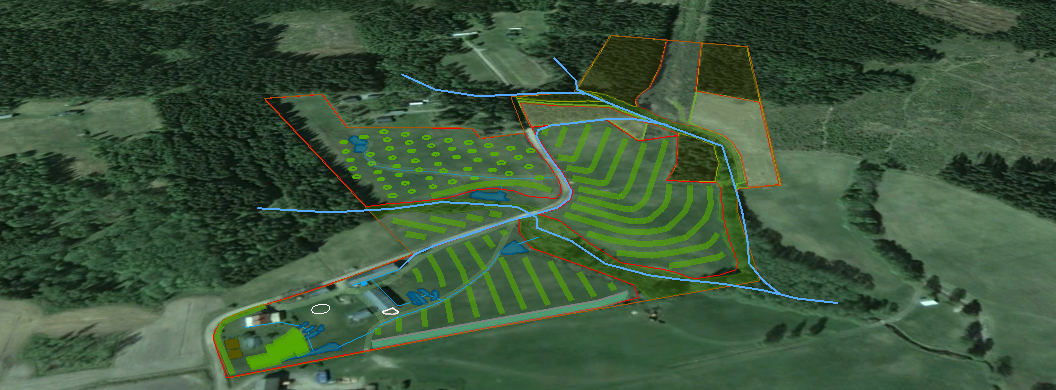

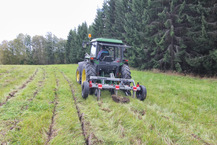

 RSS Feed
RSS Feed